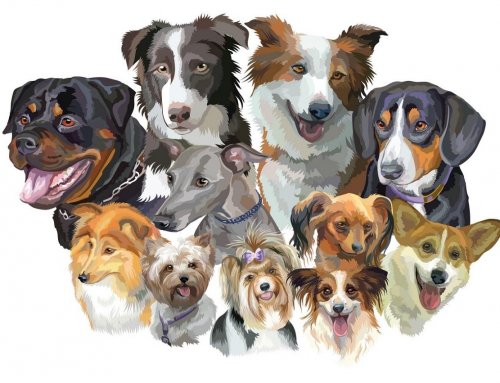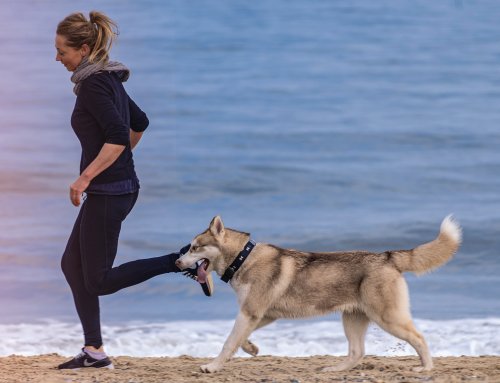
Dog owners spend an average of $140 a month on their pet, with much of this going on high-end dog food to keep pampered pooches happy and healthy. What a lot of Husky and Doberman owners don’t realize is that it’s important to feed them a breed and age-specific diet to meet their nutritional needs throughout their life. For Huskies, this helps them to maintain a healthy weight; and for Dobermans, it provides good nutrition for the rapid growth they experience from puppy-hood to adulthood.
Feeding Husky Puppies
As with any new puppy, it’s important to know what your husky was eating before you adopted them. If you’re going to change their diet to different food, you should buy what they originally had and gradually reduce the amount given and increase the new food over 10-14 days. Some breeders may give you some of their food to assist with this. Husky puppies should be fed three times throughout the day until they reach between four to eight months when it should be reduced to morning and evening. By nine months your husky will be happy to eat one meal a day.
Best Nutrition For Adult Huskies
Many experts believe Huskies will thrive on a diet made up of both commercial dog food and meats and vegetables, as this matches the variety that comes with their natural scavenger instinct. Siberian Huskies were originally bred to be working dogs in harsh conditions where food could be scarce, and this has affected the way they burn calories and use nutrients. Therefore, huskies tend to eat less than other breeds and will eat only until they are full, as opposed to some breeds that will eat as much as they’re given, such as Labradors. If you choose to give commercial dog food, you should dish up 60% of what the label recommends based on weight as this will be enough for a husky. Huskies are also known to eat based on how active they are, so if they’ve not exercised much they will eat even less.
Feeding Doberman Puppies
Picking food for your new Doberman pup should be based on if their physical exercise needs are being met. An average puppy will need a food that is 26% protein and 15-18% fat, according to the British Columbia Doberman Pinscher Club. You need to pick between dry food and wet canned food. Dry food tends to have preservatives in it but is cheaper, good for teeth and has less fat content, whereas canned food can be up to 70% water, but stores well and adds variety. 5 star puppy foods are the best option for a high-quality diet, and Dobermans should have a puppy-only food that will be high in calories to help with the rapid growth seen in the first year of their life.
Best Nutrition For Adult Dobermans
Dobermans are adults at 12 months old, so should be switched to adult dog food, but some vets may recommend puppy food for longer, depending on growth and health. As Dobermans turn into seniors, from 10 years old, their metabolism tends to slow down, and digestion problems can occur. Switching to a senior food can help as they tend to have lower calories content and will be digested easier. Throughout their adult life, Dobermans do best being fed twice a day: morning and evening.
Your vet will always be able to give you advice for your pooch depending on their health, age and breed, but these guidelines are a good place to start. You get what you pay for with dog food, so the more you pay the better quality the food. A good diet will help your dog live a long and healthy life.
Written By Cassidy Ellams











